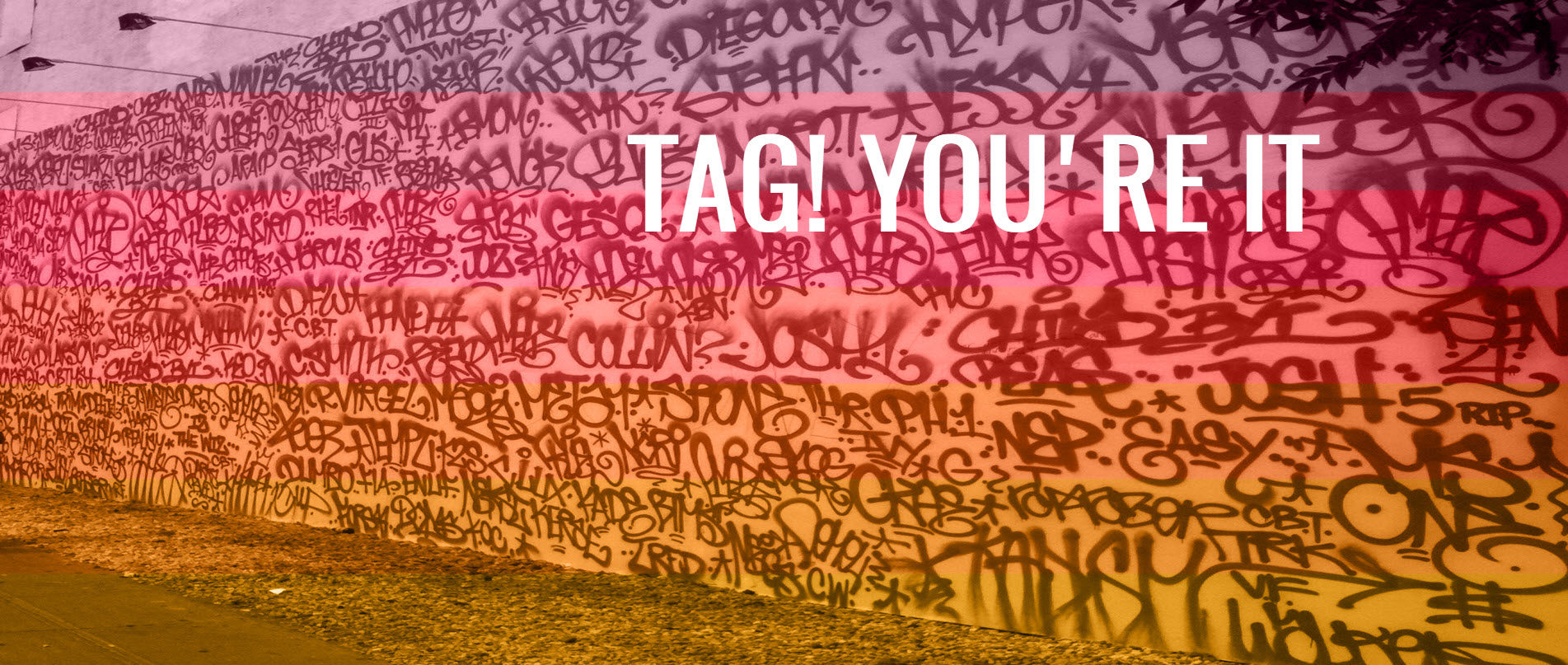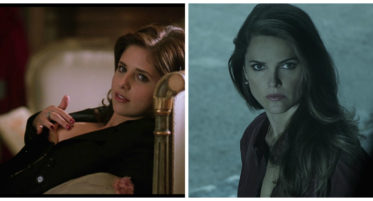
Prompt Images
Last November I found myself scrolling random ESPN stories online. I came across one about what has to be the most insane road race ever conceived: Badwater 135. The author provided an intimate, highly literate glimpse into her 135-mile, uphill death march across an inferno and up into the throat of hell. I was so blown away by that story that I googled her. Never did I expect to find out that this crazy person was also the editor-in-chief of a pretty cool creative writing magazine (hey, you know I write for fun too…).
One year later, I get to ask Kelaine how it all came to be.
Kelaine, it’s been a fun year rediscovering the joy of writing, and I want to thank you for that. Tell me where did your love of storytelling begin? How did it begin?
Oh, man. This thing goes way way back—all the way to kindergarten, if you can believe it. I think I was just proud that I knew how to write that I scribbled my chickenscratch into a two-page “book” about Christopher Columbus, which I stapled into a cardboard jacket, like it was a hardcover book. How shameful and hilarious that my writing career started with lies. Young Kelaine was such a hack! I soon moved on to other propaganda, like writing about how bats were actually good—so don’t be scared of them—because they ate mosquitos.
And I’m super grateful because creative writing was pushed very early and consistently in my elementary school, and I caught the bug for life. It’s something that I’ve continued to use as an outlet for and way to exercise creativity. After school, I started a personal blog called Benign Humor, then started The Prompt, then started freelance writing.
You’re clearly a passionate writer but also an accomplished athlete. Not a typical mix of skills. Do you find that one inspires or improves the other? Do long training runs stimulate rich stories? Does a creative mind help you reach deeper during a grueling competition?
Wow, I love these questions, Devin. For me, running and thinking are two extremely important forms of exercise. I don’t know who I’d be or how I’d function without them. And they complement each other in really symbiotic ways.
Sometimes when I run, my mind goes totally blank, almost like a meditative state. And though I can’t plan when that happens for me, it is an awesome way to find clarity when I’m overstimulated by work, or editing, or whatever else is happening in my life. And that’s when you get these ideas and epiphanies. That’s where creative magic happens.
I pretty much always run alone, and when I do that, I give my mind the chance to wander and freestyle a little bit. That might mean I go deep on one specific idea or topic, and I find that while I’m out there on the roads and trails, I don’t feel any pressure to respond to texts or check my email or catch up on #content. I’m just doing me. And it’s such a freeing, energizing feeling that just leads to better ideas.
Does that clarity of thought help me in competition? Definitely. When you’re running a 100-miler, you have to do a ton of problem-solving on the fly.
If my knee starts nagging, how can I adjust to make that pain go away?
If I’m hungry but my stomach is a little woozy, what should I eat to keep feeding the machine?
If I let myself get dragged into a mental black hole, how can I get myself back into a good headspace?
It turns out, being a creative, clear thinker is the answer to almost everything.
Your pieces range from fiction to memoir, poetry to politics. But the common thread I find in all of them is a keen sense of humanity. What piece are you most proud to have written? Why that one?
In 2018, I had the privilege of being on the support crew for my friend Mosi when he ran Badwater for his third time, and he was chasing an aggressive [personal record]. Mosi had basically been my ultrarunning sensei—he really brought me into the sport and community—so I was really honored to be on his crew and help him try to smash his goal. But ultimately, he went out too fast, overheated, and his race blew up. He wound up having to drop at mile 95, and it was truly devastating. To see someone you care about give everything they have—physically, mentally, and emotionally—and still come up short? That’s brutal. But it sure does teach you things. And man, does that make for a good story.
Writing that piece and exploring my own thoughts on failure really moved me. And so I really tried to go there… it’s the first time I have felt like I really wrote my ass off, you know? And I remember sending it to my editor at espnW, Susie Arth, at like 3 A.M. and just hoping it would do justice to the experience. Lucky for me, Susie believed in me and in the story, and she pushed it far beyond my expectations. Ultimately, it landed not just on ESPN’s main website, but also in print in ESPN the Magazine. That was a real moment for me.
*here’s the link to Kelaine’s ESPN piece entitled “At Badwater 135 ‘sometimes the bear eats you’. It’ll make you want to go do something really hard, and then write about it.
https://www.espn.com/endurance/story/_/id/32718310/at-badwater-135-somes-bear-eats-you
How has big sis (and fellow Prompt writer) Jillian influenced your writing? As the self-described “plucky little sister,” are you the Serena Williams of the Conochan family?
The short answer is no, I’m not the Serena Williams of anything.
But I do owe pretty much everything I’m not and everything I am to Jillian. Growing up, she and I bickered literally every single day. And we weren’t afraid of getting physical, either. Throwing fists or TV remotes is not just for boys, y’all.
I think we were both kind of jockeying for our own space and identity. We were both good students, played lots of sports, had a lot of the same hobbies and interests… and we even had the same speaking voice, which people would get confused on the phone. So, I think we were both kind of trying to shore up what made us unique. I didn’t want to be “Jillian Conochan’s little sister” and she probably didn’t want me nipping at her heels all the time. Eventually, we figured it out as we got a little older, a little more mature, and when she went to a different school where we had a little more space.
But in those early years, I learned to fight for airtime, use my outdoor voice, speak up for myself, and punch above my pipsqueak weight class. Those are all skills that made me pretty unafraid to be myself, pretty confident in my voice. And I think that voice is probably the single most important element of my writing.
Now the question many of us latecomers to this blog probably have. How did The Prompt Magazine come to be?
While I’ve always loved to write, it’s also really hard and draining to do it sometimes. So, whenever I got busy, writing was the first thing I’d cut from my day. Someone invited me to play soccer? I’d skip that day. Friends going to dinner? I’d skip that day. So I was really pissed at myself because here I was, wanting to be a writer, and I felt like I was really unaccountable and just totally negligent about working on my craft.
So, I worked backwards and thought, okay, what are things that make me accountable? and I realized that I was always good as a team captain, when people were relying on me. So, how do I make writing a team sport? And I realized that I know plenty of people who are creative and enjoy writing, but who had the same problem I did. So, I pitched them the idea of a community of creatives that read and support each other’s work, and we had lots of hand-raisers. A few Sunday night strategy calls later, and boom! The Prompt was born.
In 2016, we started by just sending out a weekly email with a Google Doc of the “issue” of all the pieces people had written. And from that, people would leave comments and feedback on what they liked or learned. But then we built a website, and since then the community has really thrived, thanks in large part to Jillian growing our following on Twitter and finding new writers looking for an outlet and a place to connect with other writers. It’s been truly amazing to find writers from all over the country, and a few from across the globe. And I always say—I think this is probably the most positive community on the internet. Just good people, good ideas, good vibes abound.
What is it like reading and editing so many diverse writing pieces every week? What do you love most about that? What is the toughest thing about it? How’s the pay?
I kind of have a sick obsession with editing. It’s not that I like the power of the red pen, but the idea that I can bring a fresh set of eyes to improve someone else’s writing? That’s just gold to me. It’s transformative. Occasionally, I have to give some hard, direct feedback about what’s not working in a piece, but to me, that is actually the ultimate kindness. I love feedback like that because it tells me that someone cares enough to make me better. Doesn’t everyone want to get better? Isn’t that why we’re all doing this? I mean, I feed off that energy.
These mundane but necessary things are the “grind” part of editing. Thankfully, I’m a grinder. As an ultramarathoner, relentless effort is one of my superpowers.
Last question. Has The Prompt realized your vision for it? In your wildest dreams, what does The Prompt look like?
I never had any interest in monetizing the site. Sure, the pay sucks, but I think having those hideous belly fat ads littering in the margins would ruin the whole thing, to be honest. Money was never the point, and I don’t need capitalism to force its way into every aspect of my life and how I use my time. This is a passion project.
So I’d say we’re already there. I’m not saying The Prompt is perfect, but as long as our writers are happy and writing, it is exactly what I wanted it to be. I just wanted to build and foster a community that loves telling great, original stories. And it’s the writers who keep coming back to tell their stories and share their ideas who make this place so special.



